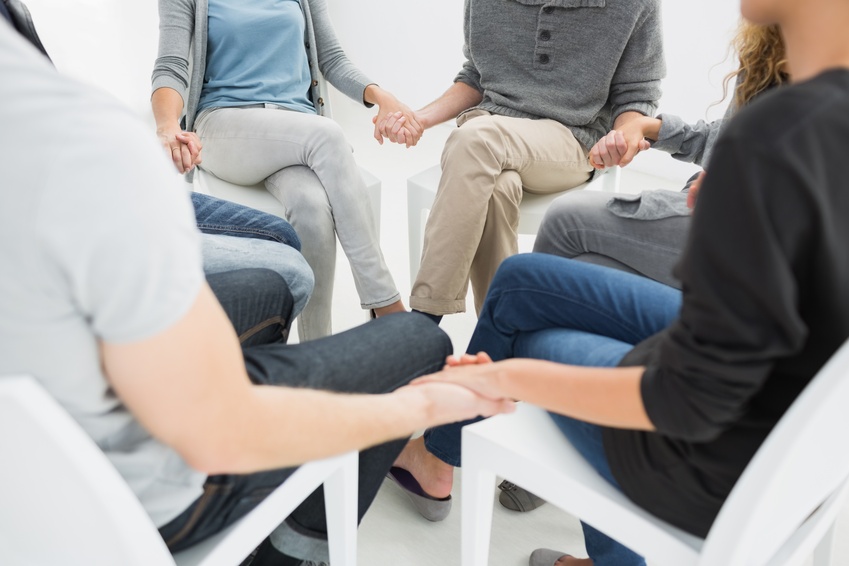- Calls to this hotline are currently being directed to Within Health, Fay or Eating Disorder Solutions
- Representatives are standing by 24/7 to help answer your questions
- All calls are confidential and HIPAA compliant
- There is no obligation or cost to call
- Eating Disorder Hope does not receive any commissions or fees dependent upon which provider you select
- Additional treatment providers are located on our directory or samhsa.gov
Pros and Cons of Eating Disorder Support Groups

There are an array of treatment options available for individuals struggling with disordered eating. Eating disorder support groups are one of those options. Like all treatment options, eating disorder support groups come with a unique set of pros and cons.
One of the things about support groups is that everyone in the group can relate to the struggles a person is going through. Unfortunately, those that can relate can become overbearing know-it-alls giving unsolicited advice.
Pros and Cons of Eating Disorder Support Groups
Pros:
- Typically more affordable and, in some cases, free
- Offers a validating, supportive, and non-judgmental space
- Provides a sense of belonging and acceptance
- Provides an opportunity for accountability
- Offers differing perspectives and feedback
- Provides the opportunity to address and heal relational issues
- Promotes insight and awareness of one’s own thoughts, feelings, and behaviors
- Builds social and relationship skills
Cons:
- Sharing personal thoughts, emotions, and behaviors with others, especially a group of people, can be challenging and uncomfortable
- Given the nature of support groups, difficult topics can arise that may make some uncomfortable
- Support groups are not appropriate for those who are experiencing a crisis or are not able to function in their daily lives
- While group confidentiality should be respected and maintained, group members are not held to the same standards as licensed professionals (therapist, physicians) — thus, confidentiality cannot be guaranteed
- Some support groups are not led by professional counselors or those trained in group therapy — in these cases, there are particular risks associated with maintaining a healthy group dynamic, group safety, and confidentiality
If you or a loved one are struggling with disordered eating, hopefully thinking about these pros and cons will provide more information on whether or not joining an eating disorder support group may be a good treatment option.
References:
Yalom, Irvin. (2008) The Theory and Practice of Group Psychotherapy. Fifth Edition. Basic Books.
About the Author:
 Chelsea Fielder-Jenks is a Licensed Professional Counselor in private practice in Austin, Texas. Chelsea works with individuals, families, and groups primarily from a Cognitive Behavioral Therapy (CBT) and Dialectical Behavior Therapy (DBT) framework.
Chelsea Fielder-Jenks is a Licensed Professional Counselor in private practice in Austin, Texas. Chelsea works with individuals, families, and groups primarily from a Cognitive Behavioral Therapy (CBT) and Dialectical Behavior Therapy (DBT) framework.
She has extensive experience working with adolescents, families, and adults who struggle with eating, substance use, and various co-occurring mental health disorders. You can learn more about Chelsea and her private practice at ThriveCounselingAustin.com.
The opinions and views of our guest contributors are shared to provide a broad perspective of eating disorders. These are not necessarily the views of Eating Disorder Hope, but an effort to offer a discussion of various issues by different concerned individuals.
We at Eating Disorder Hope understand that eating disorders result from a combination of environmental and genetic factors. If you or a loved one are suffering from an eating disorder, please know that there is hope for you, and seek immediate professional help.
Published on June 28, 2019, on EatingDisorderHope.com
Reviewed & Approved on June 28, 2019, by Jacquelyn Ekern MS, LPC

The EatingDisorderHope.com editorial team comprises experienced writers, editors, and medical reviewers specializing in eating disorders, treatment, and mental and behavioral health.

